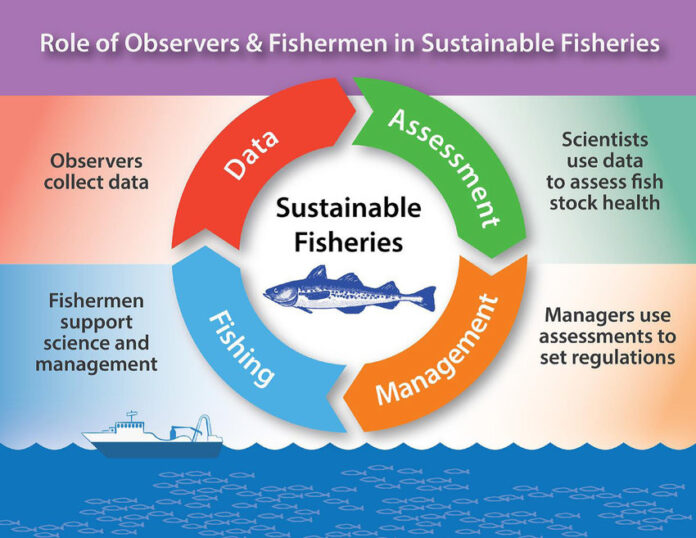Sustainable fisheries are critical for maintaining healthy ocean ecosystems and ensuring the long-term viability of seafood resources. As the demand for seafood continues to rise, the need for sustainable fishing practices becomes increasingly urgent. In this article, we explore the concept of sustainable fisheries, the threats they face, principles of management, effective practices, success stories, challenges, and future directions.
Introduction to Sustainable Fisheries
Sustainable fisheries refer to the responsible harvesting of fish stocks in a manner that ensures their long-term health and abundance. It involves balancing the needs of present and future generations while considering ecological, social, and economic factors. Sustainable fisheries are essential for preserving marine biodiversity, supporting livelihoods, and maintaining food security.
Threats to Fisheries Sustainability
Several factors pose significant threats to the sustainability of fisheries worldwide. Overfishing, whereby fish stocks are harvested at a rate faster than they can replenish, is one of the most pressing issues. Habitat destruction, such as the degradation of coral reefs and coastal wetlands, also jeopardizes the health of fish populations. Additionally, bycatch, the unintentional capture of non-target species, contributes to declines in biodiversity and ecosystem health.
Principles of Sustainable Fisheries Management
Effective management of fisheries requires adherence to several key principles. Science-based management involves using the best available scientific data to inform decision-making and set sustainable harvest levels. An ecosystem approach considers the interconnections between species and their habitats, recognizing that healthy ecosystems are essential for fishery sustainability. Furthermore, stakeholder engagement, including fishers, scientists, policymakers, and communities, is crucial for developing and implementing sustainable management strategies.
Practices for Promoting Sustainable Fisheries
Numerous practices have been adopted to promote sustainable fisheries management. Fishing quotas and limits set by regulatory authorities help prevent overexploitation of fish stocks by controlling the amount of fish that can be harvested. Marine protected areas designate specific areas where fishing activities are restricted or prohibited, allowing fish populations to recover and ecosystems to thrive. Additionally, the use of sustainable fishing gear, such as selective trawls and traps, minimizes environmental impacts while maximizing catch efficiency.
Success Stories in Sustainable Fisheries
Several countries and organizations have achieved notable success in implementing sustainable fisheries management practices. New Zealand’s Quota Management System, which allocates fishing rights to individual fishers or companies based on scientifically determined quotas, has led to the recovery of several fish stocks and reduced discards. The Marine Stewardship Council certification program recognizes fisheries that meet strict sustainability criteria, providing consumers with assurance that their seafood is sourced responsibly. Community-based fisheries management initiatives empower local communities to take ownership of their resources and implement sustainable fishing practices tailored to their needs.
Challenges and Limitations
Despite progress in promoting sustainable fisheries, numerous challenges persist. Enforcement and compliance with fishing regulations remain a significant issue, particularly in regions with limited resources and governance capacity. Achieving global cooperation and coordination is essential for addressing transboundary fisheries management issues effectively. Moreover, the impacts of climate change, such as ocean warming and acidification, pose additional threats to fish stocks and marine ecosystems, necessitating adaptive management strategies.
Future Directions and Innovations
Looking ahead, advancements in technology hold promise for enhancing the sustainability of fisheries. Remote sensing technologies, such as satellite imagery and drones, enable more accurate monitoring of fishing activities and enforcement of regulations. Furthermore, the development of alternative protein sources, such as plant-based and cell-cultured seafood, offers potential solutions to reduce pressure on wild fish stocks while meeting the growing demand for seafood. Policy reforms aimed at improving governance, strengthening international cooperation, and integrating climate considerations into fisheries management are essential for ensuring the resilience and sustainability of fisheries in the face of evolving challenges.
Conclusion
In conclusion, sustainable fisheries are vital for preserving ocean ecosystems, supporting livelihoods, and ensuring food security for future generations. By embracing science-based management, stakeholder engagement, and innovative practices, we can promote the long-term sustainability of fisheries worldwide. Governments, industry stakeholders, and civil society must work together to address the challenges facing fisheries and implement effective management strategies to safeguard marine resources for the benefit of all.




